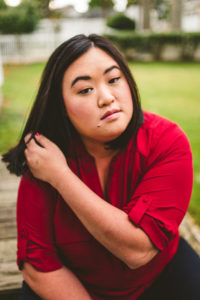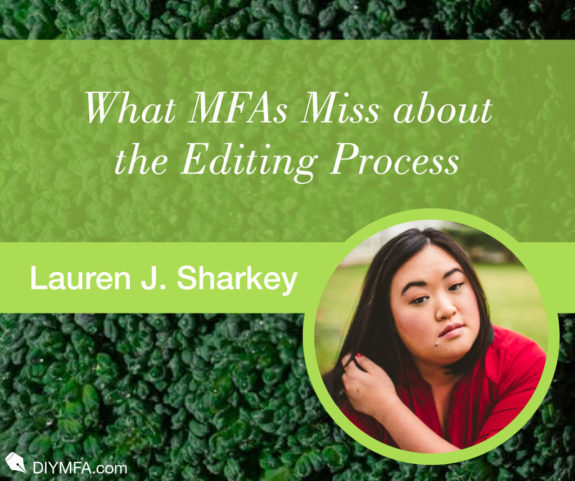Browsing Twitter last week, I saw a tweet from a colleague of mine that read, “I’m curious, for writers who have published books, what was the editing process like? Especially curious about your first book. From whom and at what stage did you receive edits? To what degree? Does this question even make sense? Why did my MFA never talk about this?”
Let me take you through my answer:
MFA: Missing Factual Applications
There are a lot of great things about MFA programs: time and space to write, the opportunity to make connections with writers, and let’s not forget actual writing. However, one of the ways MFA programs fall short is they sometimes stand for Missing Factual Applications.
Were it not for my internship, (read: me legit convincing my professor they needed to let me work for them so I could absorb their real-world knowledge like a sponge) I wouldn’t know anything about the editing process, querying, publishing, and everything in between. MFA programs are so committed to writing, they forget there’s another type of education their writers need (read: the deets on the DIRE situation that is publishing).
Let me level with you, MFAs aren’t perfect
My MFA program didn’t teach us !@#$ about how to query agencies, or our manuscripts, ways to leverage our education in pursuit of jobs outside adjunct teaching, and the amount of education we received regarding publishing was straight up laughable.
So, my first piece of advice to this person was: Do not blame yourself for what you don’t know. MFA programs need to find ways to do right by their students by providing transparent and current resources which will help them achieve their goals.
I found the reason my MFA program didn’t provide any insight into the editing process or the publication process was because they were so grossly out of touch. Despite the fact that one of our faculty members was published several times over, they never taught us a thing about querying. Another faculty member’s book was optioned for a TV series, and yet we never got a lesson in film and media rights.
What you don’t know isn’t your own fault but, unfortunately, it becomes your responsibility to learn…which is easier said than done.
Answering the Question
The answer to this person’s query is dependent on several factors: what stage of the writing process you’re in and how you’re being published.
The Writing Process
Drafting: If you’re still drafting (meaning you are not yet ready to query publishers), I advise reaching out to anyone and everyone who is willing to read your work. Getting opinions and feedback from those whose life experience, and genre, is different from your own is supremely helpful and valuable.
Getting Ready to Query: Once you are confident your draft is ready to be sent to publishers, I recommend working with an editor who 1) understands your vision for the book, and 2) is familiar with your voice, for tightening, line edits, narrative plot holes, and reviews of your query letter.
If you find you’re getting consistent rejections, take note of what the rejections are saying (assuming they’ve provided feedback) and re-work your draft.
Post Contract Signing: This part of the editing process really depends on the publisher. Depending on your publisher’s budget, you may or may not be assigned an editor to work with you until final proof. With my publisher specifically, there was an expectation the draft I presented was as close to the final draft as possible. I went to page proofs relatively quickly.
Page Proofs: Page proofs refer to the proof of the manuscript the publisher intends to send to print. When I received the page proofs, I did a one over myself, then I worked overtime in order to pay for an independent editor to also do a once over for spelling, syntax, and narrative errors. There was an expectation that edits made during this phase would not be large scale plot edits.
To be completely transparent, I was published by an independent publisher, and assume a lot of the expectations around proofing and editing are dependent upon your publisher. However, I think the above is a good baseline for what you can expect with the editing process.
What other questions do you have about the editing process, writing a novel, or getting published? Drop them here and Lauren might answer them in a future column!

Lauren J. Sharkey is a writer, teacher, and transracial adoptee. Inconvenient Daughter is her debut novel and loosely based on her experience as a Korean adoptee. You can follow her at ljsharks.com, and on Facebook, Instagram, and Twitter.







